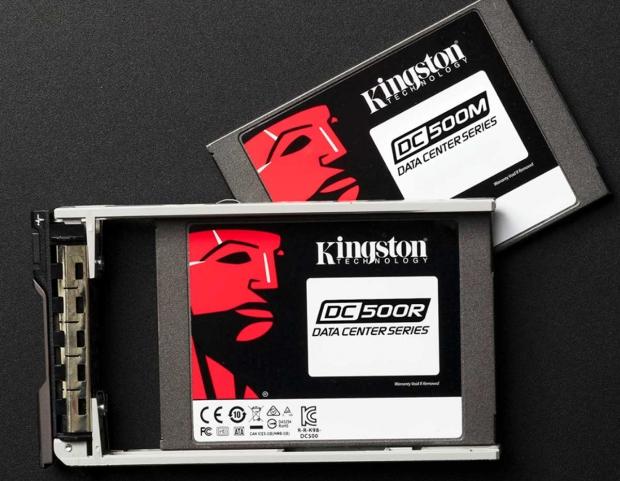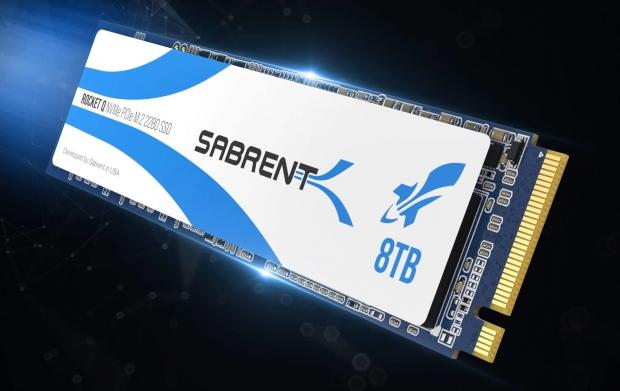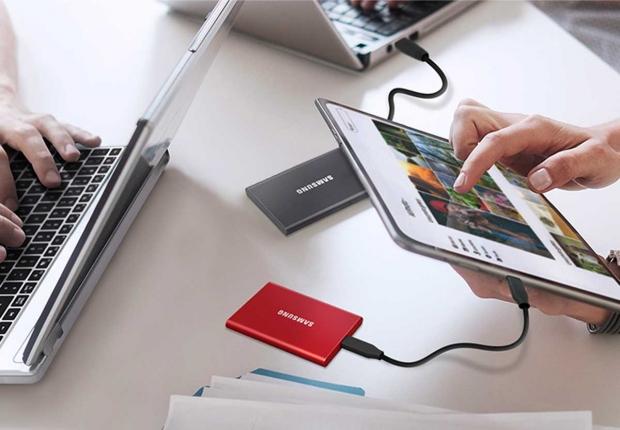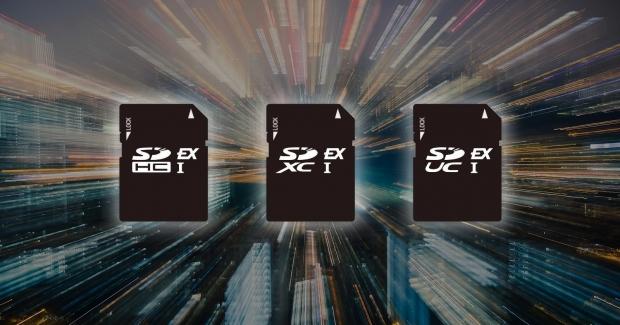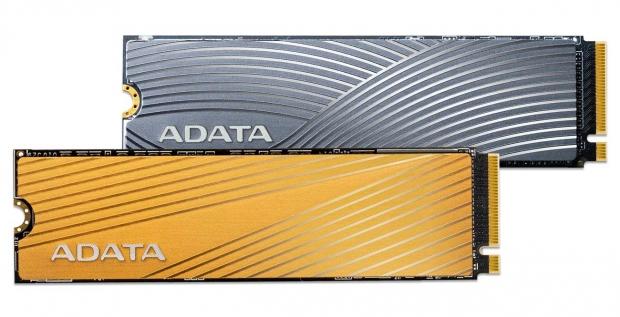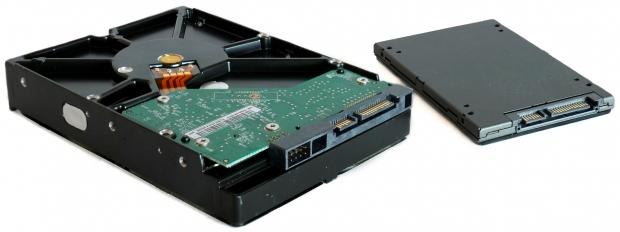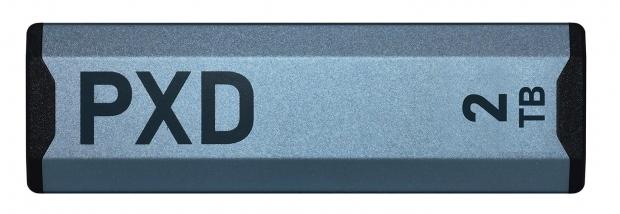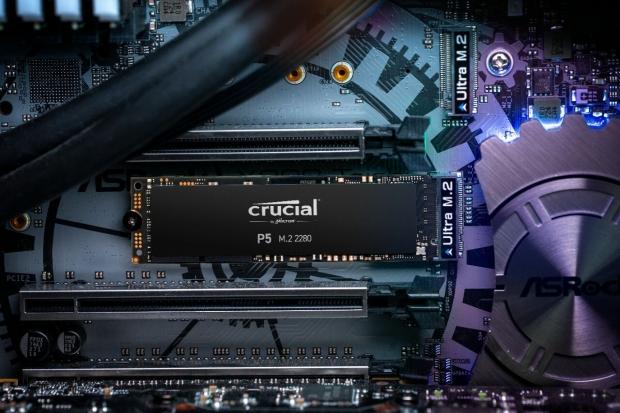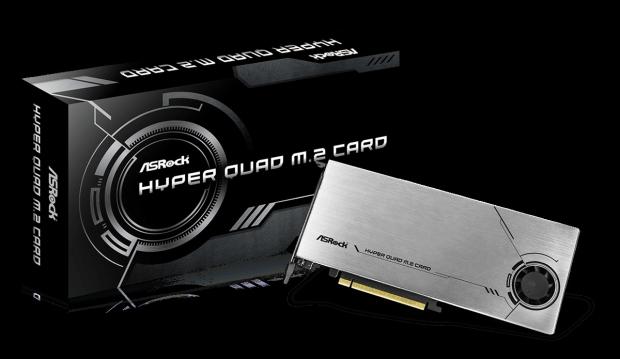Storage News - Page 35
Kingston is shipping a 7.68 TB data center SSD
Kingston Digital is the flash memory affiliate of Kingston Technology Company. Kingston Digital has announced that it is now shipping a 7.68 TB model of the DC500R SSD and DC450R SATA SSD. Another new drive called the DC1000M 7.68 TB U.2 NVMe ships in June.
Kingston says the SSD provides additional storage and implements strict QoS ensuring predictable I/O and low latency for data centers using NVMe or SATA. The DC500R is a VMware Ready SSD that's engineered for read-intensive applications like web servers, virtual desktop infrastructure, operational databases, and real-time analytics.
The DC450R has a specific and focused feature set for read-intensive applications and is optimized for data centers looking for more affordable alternatives to write-intensive SSDs. The drive is designed for content-delivery networks, edge computing, applications, and a range of software-defined storage architectures.
Continue reading: Kingston is shipping a 7.68 TB data center SSD (full post)
Lexar rolls out new M.2 NVMe SSDs that pump up to 3.5GB/sec
Lexar has just unveiled its new Professional NM700 NVMe SSD, with the new storage drive coming in three different capacities: 256GB, 512GB, and 1TB.
Inside, we have Lexar tapping the PCIe 3.0 x4 interface which offers some great speeds of up to 3.5GB/sec (3500MB/sec) reads, and up to 2GB/sec (2000MB/sec) writes. Lexar is using 3D NAND flash on the drive, with LDPC technology (Low-Density Parity Check) error code checking technology.
LDPC helps facilitate transfers of large amounts of data, making it more reliable and fixing errors before they arrive so that it doesn't slow the drive down. Lexar provides a 5-year warranty with its new Professional NM700 NVMe SSD drives, too. As for pricing:
Continue reading: Lexar rolls out new M.2 NVMe SSDs that pump up to 3.5GB/sec (full post)
Sabrent unveils world's first 8TB NVMe M.2 SSD: up to 3.4GB/sec reads
Sabrent is celebrating quite a big deal today, with the storage leader unveiling the latest member of its Rocket Q family of SSDs with the world's first 8TB NVMe M.2 SSD.
The new Sabrent Rocket Q 8TB NVMe PCIe M.2 2280 is a new M.2 PCIe 3.0 x4 SSD that comes in a new 8TB capacity, joining its siblings in the 500GB, 1TB, 2TB, and 4TB capacities. Inside, Sabrent packs 3D QLC NAND Flash memory that is capable of reaching the lofty heights of 3.4GB/sec reads, and up to 3GB/sec writes.
Sabrent is tapping Phison's E12S controller (like the rest of the Rocket Q SSDs) but the company hasn't quite detailed out the drive in terms of Random 4K read/writes, but we should expect some stellar specs and speeds from the 8TB drive.
Continue reading: Sabrent unveils world's first 8TB NVMe M.2 SSD: up to 3.4GB/sec reads (full post)
Samsung T7 portable SSD is small in size and big in storage
Samsung has announced a new portable SSD that drops into the lineup right below the existing Samsung T7 Touch portable SSD that launched in January. The new storage device is called the Samsung T7, and it promises the fastest transfer speeds currently available using the USB 3.2 Gen 2 standard.
The storage device is available in capacities of 500 GB, 1 TB, and 2 TB and is roughly the size of a business card. The small stature makes it easy to slip into a pocket and take with you on the go. The T7 has read speed of 1050 MB/S and write speed of 1000 MB/S, making it roughly twice as fast as the Samsung T5 portable SSD and up to 9.5 times faster than external hard drives.
The T7 can reach its maximum speed using the NVMe interface, helping to speed up workflows and the transfer of large files. The SSD comes with a USB Type-C-to-C cable and a USB Type-C-to-A cable. The SSD is compatible with Windows, Mac, and Android operating systems.
Continue reading: Samsung T7 portable SSD is small in size and big in storage (full post)
These next-gen SD cards blow your HDD or SSD speeds out of the water
Well, it looks like SD cards of the future are going to be mind blowingly fast -- with the SD Association announcing the new SD 8.0 specification and speeds of up to an insane 3.9GB/sec. Yeah, nearly 4GB/sec from an SD card.
The SD Association announced the new SD 8.0 spec which has support for PCIe 4.0, and speeds of up to 3940MBps (just shy of 4GB/sec). What are SD card speeds now? The current SD Express card spec sees speeds of up to 985MBps, while UHS-III SD cards provide up to 624MBps.
if you want those super-fast 4GB/sec speeds then you're going to need a new SD card reader that has 2 x PCIe 4.0 lanes, because if you don't those glorious speeds will be halved, down to just under 2GB/sec (1920MBps) over PCIe 3.0.
Continue reading: These next-gen SD cards blow your HDD or SSD speeds out of the water (full post)
ADATA Falcon and Swordfish PCIe Gen3x4 M.2 2280 SSDs debut
ADATA has announced the launch of a pair of new solid state drives that it is aiming at creators. The new SSDs include the Falcon and Swordfish PCIe Gen3x4 M.2 2280 SSDs. Each use 3D NAND flash memory and delivers a read/write speed of up to 31000/1500MB per second. ADATA says that using the 3D NAND flash memory allows higher efficiency and increased reliability compared to 2D NAND SSDs.
Falcon drives will be offered in capacities that range from 256 GB up to 2 TB and feature data protection and correction technologies to expand the life of the SSD. Falcon also has intelligent SLC caching, host memory buffer, and a random read/write of 180/180K IOPS. To help keep the SSD cool, it features an aluminum alloy heat sink.
The ADATA Swordfish SSD also features 3D NAND flash memory and uses the PCI Gen3x4 interface. The drive offers sustained read/write speeds of up to 1800/1200MP per second and SLC caching. Other features include a host memory buffer and random 4K read/right of 180/180K IOPS. ADATA offers the SSD in capacities of 250 GB to 2 TB. This SSD also features an etched aluminum alloy heat sink to keep the drive cool.
Continue reading: ADATA Falcon and Swordfish PCIe Gen3x4 M.2 2280 SSDs debut (full post)
How long do Hard Drives and SSDs last? How do they die over time?
Having data backed up and stored is always a wise thing to do, as information or data is wealth in today's world. Previously for long-term storage, organizations relied on compact disks or magnetic tapes for archiving data. Data archiving is the process of storing data which is not actively used on storage devices for long term retention. Although these conventional storage devices served their purpose of storing data on a long-term basis, accessing the information from these drives takes a lot of time.
Modern storage drives such as Hard Disks and SSDs not only can store large amounts of data but can also operate at a faster speed. Hence, accessing information is a lot faster and easier. Having said that, it is to be noted that they are not shielded from pedestrian electronic problems like any other device. The performance of storage drives such as hard drives and SSDs can degrade over time and abruptly result in hard drive failure.
Keeping aside the fiscal loss, data loss is the biggest agony when it comes to failing storage drives. Data loss could occur due to system crash, malware infection, file system corruption, or any other reasons. However, it is possible to recover data using Remo data recovery tool very safely. But if you are using the drive to archive data and store them for a longer period, data degradation can happen majorly due to bit Rot.
Continue reading: How long do Hard Drives and SSDs last? How do they die over time? (full post)
Patriot's new external SSD: USB-C, up to 1GB/sec for PC, Mac, consoles
Patriot Memory has just unveiled its new external SSD, which comes in capacities of 512GB, 1TB, and 2TB -- all through a single USB-C connector that will go into PCs, Macs, and even consoles.
The company will be providing a Type-C to Type-A cable as well as a Type-C to Type-C connector so you can plug it into virtually any device you can imagine. Patriot is using a PCIe 3.0 x4 controller offering up to 10Gb/sec with the latest USB 3.2 Type-C interface.
Roger Shinmoto, the Vice President of Patriot explains: "Storage brands are always looking to improve their products at the specification level and often overlook the compatibility and user experience; the PXD brings the perfect balance between them all. More importantly, the PXD is made for any user, including desktop PC, laptop, MacBook, and console gamers".
Continue reading: Patriot's new external SSD: USB-C, up to 1GB/sec for PC, Mac, consoles (full post)
Crucial's new P-series M.2 NVMe SSDs offer up to 3.4GB/sec read speed
Crucial has just announced some new members to its P-series family, with new M.2 NVMe SSDs offering up to 3.4GB/sec read and up to 3GB/sec writes.
The new Crucial P5 series of drives are being offered in the M.2-2280 form factor, using PCIe 3.0 x4 host interface with NVMe 1.3 these drives offer sequential read speeds of up to 3400MB/sec, and sequential writes of up to 3000MB/sec (1400MB/sec for the smaller 250GB model of the Crucial P5).
Crucial is using a DRAM-cache cushioned controller inside of the new P5-series SSDs, and 3D NAND flash alongside a 5-year warranty. Crucial's new P5-series drives will be available in 250GB (the slower model), with larger 500GB, 1TB, and 2TB capacities also available.
Continue reading: Crucial's new P-series M.2 NVMe SSDs offer up to 3.4GB/sec read speed (full post)
ASRock unleashes its Hyper Quad M.2 PCIe 4.0 expansion card
If you want some of the most insane storage you can cram into a PC, then you will want to check out ASRock's new Hyper Quad M.2 PCIe 4.0 Expansion Card.
ASRock's new Hyper Quad M.2 PCIe 4.0 Expansion Card if you couldn't already tell from its name, can handle 4 x NVMe M.2 SSDs and cram them into a single PCIe 4.0 x16 slot. It supports M Key type 2242/2260/2280/22110 M.2 PCI Express modules.
The 4 x onboard M.2 sockets are on a 45-degree angle inside of the card, a move by ASRock to keep the traces as short as possible -- meaning that the M.2 sockets have enough current, something that is imperative for the speeds that PCIe 4.0 SSDs can reach in the multiple GB/sec range.
Continue reading: ASRock unleashes its Hyper Quad M.2 PCIe 4.0 expansion card (full post)


